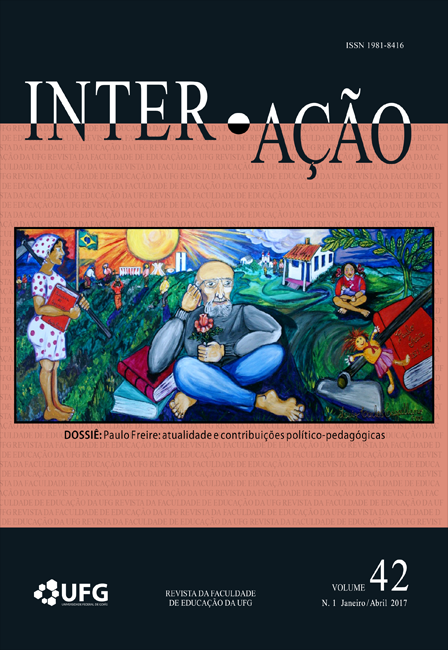AUTONOMIA EM TEMPOS DE CAPITALISMO FLEXÍVEL: UMA ABORDAGEM A PARTIR DE PAULO FREIRE
DOI:
https://doi.org/10.5216/ia.v42i1.44060Keywords:
Autonomia. Autoria. Corrosão do Caráter. Inacabamento.Abstract
O artigo reflete sobre a categoria Autonomia em Paulo Freire, sua relevância e aplicabilidade no atual estágio da sociedade capitalista. É uma abordagem teórica que no primeiro momento discute o conceito de “corrosão do caráter” (Sennet, 2014), no contexto do capitalismo flexível. Em seguida apresenta a concepção de “autonomia” em Freire (2008, 2014a e 2014b) fundamentada em outros postulados de sua teoria. No final são apontados contrapontos entre a lógica da sociedade do capitalismo flexível, da corrosão do caráter e a concepção freireana de autonomia. Entre os resultados destaca-se a autonomia em Freire como uma proposta humanizante, que resgata o sentido de autoria e se contrapõe ao processo desumano que rege a sociedade capitalista atual.Downloads
Published
Versions
- 2026-02-03 (2)
- 2017-06-09 (1)
How to Cite
Issue
Section
License
Copyright (c) 2017 Inter Ação

This work is licensed under a Creative Commons Attribution-NonCommercial 4.0 International License.
Inter-Ação uses the Creative Commons Attribution 4.0 License for Open Access Journals (Open Archives Initiative - OAI) as the basis for the transfer of rights. Open access means making documents available on the Internet free of charge, so that users can read, download, copy, distribute, print, search, or link to the full text of documents, process them for indexing, use them as input data for software programs, or use them for any other lawful purpose, without financial, legal, or technical barriers.
Authors publishing in this journal agree to the following conditions:
1) Authors retain copyright and grant the journal the right of first publication, with the work simultaneously licensed under the Creative Commons Attribution License, which permits redistribution of the work with attribution and first publication in this journal.
2) Authors are permitted to enter into additional, separate agreements for non-exclusive distribution of the version of the work published in this journal (e.g., for publication in an institutional repository or as a book chapter), with attribution and first publication in this journal.
3) Authors are permitted and encouraged to publish and distribute their work online (e.g. in institutional repositories or on their home page) at any time before or during the editorial process, as this may generate productive changes as well as increase the impact and citation of the published work.















